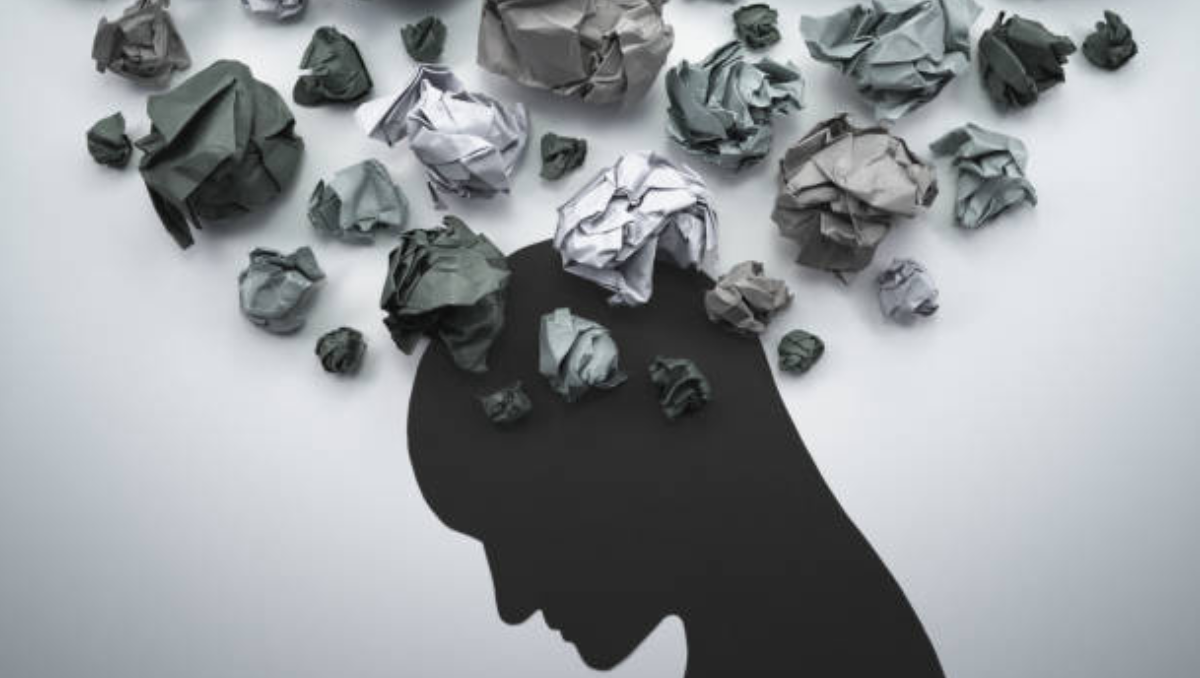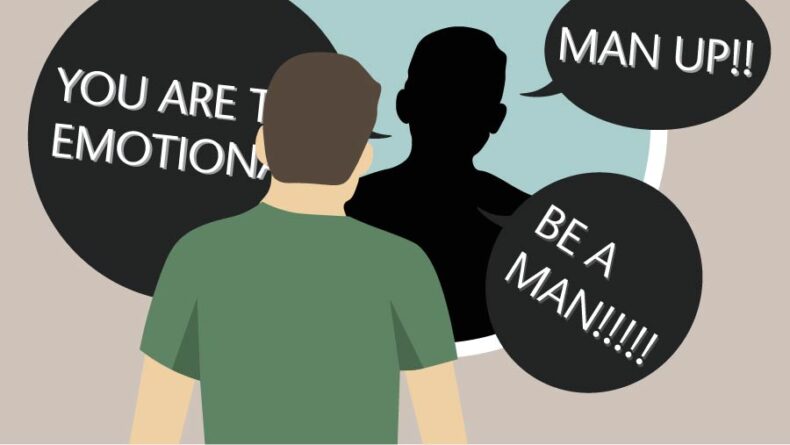“I think men who can cry are strong” -James Frey

Males as defined by our society carry some masculine properties which include strength, leadership, freedom, and courage. According to Middle English literature, a man typically has thick, broad shoulders, a muscular back, large hands and legs with huge muscles, and a square chest.
These norms and values attached to men promote mental health issues like stress, depression, and other psychological problems. Their social bonds are affected because of these unrealistic expectations they tend to feel lonely, lack loving bonds, and are hostile.
This is not overhyping the concept of the norms attached to men can lead one to the adaption of toxic masculinity it contributes to rape culture, ignoring or suppressing personal traumas and misogynistic ways of thinking which are becoming a reason for atrocities against girls and women in India.

The question arises, why do men have these rigid norms to live where they are allowed not to cry, to be cold-hearted, not to be loved and respectful to others cause that will not be an act of masculinity According to (survey, Priory) 77% of men suffer with anxiety and depression and 29% males are not open to talking about themselves.
From their early childhood, the primary thing that is often said to them is ‘boys don’t cry. When we are making them learn that gender has a role to play in expressing their feelings they gradually learn not to express them naturally and find other mechanisms to cope.
One such coping mechanism is aggression and toxic masculinity. According to a study by NIMHANS 4.6% of males went for physical aggression, The Gen Y in Indore has the angriest men constituting 91.67 %.
This rigid conditioning by the social norms amongst men and how they should be has affected relatively every man in one or the other way. Most men tend to suppress and ignore their feelings as their minds have been conditioned that expressing emotions, accessing them, and fixing ourselves is not an act of masculinity.
Ways through which we can educate men about mental health
First, education starts at home, allowing the male children to be expressive as much as they can and normalize hobbies like cooking and dancing. A child when in learning age will acknowledge things by also watching their parents so teach the parents also to normalize such things at home first.

Second, When a male comes to you no matter what relationship you share with them, respect their emotions and feelings; rather than constantly saying ‘you are strong’ and ‘stop crying’ what we can say instead is ‘it’s okay to feel this way and ‘your feelings are valid.
Third, cut down on putting excessive pressure on them to become a breadwinner and let them choose what they want to do in life.
Fourth and last, Therapy is always an option open for everyone. It is an ethical medium through which one learns to know themselves in a better way.
Through acceptance and patience, men and the stigma attached to them will be normalised soon. Once we acknowledge the problem, identification of the solution will take place with an adequate amount of knowledge about these issues













